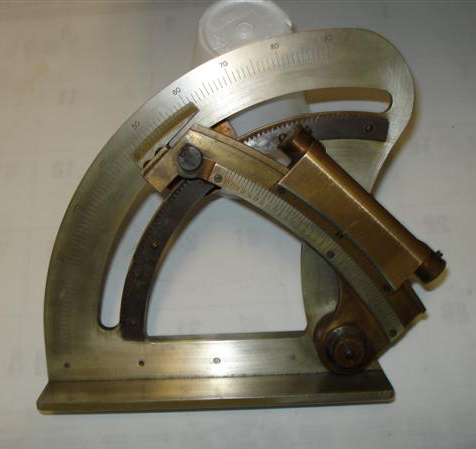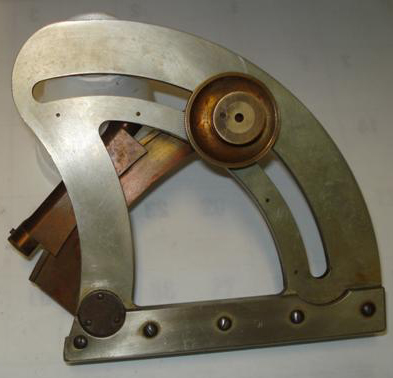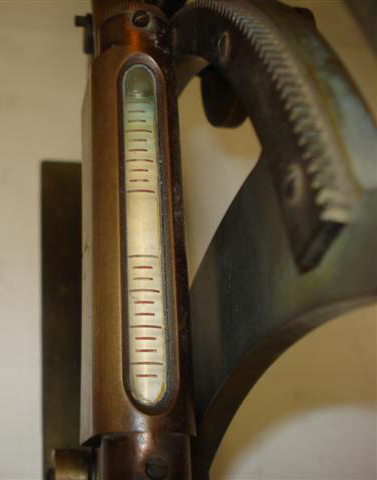Dexter Greer, a member of Weapons Co. 2/2, made it across Betio with 14 other Marines for the first night. "Fortunately the Japanese had no idea that they were there and could have easily wiped us out," he recalls. Dex says about that night, "I wish there was some way to show or read the FEAR factor." He adds, "The most important word in giving a description of Tarawa is CONFUSION." The officer with them, Lt. Shelton 1, was reported in Arnold Gladson's account to missing from his assigned landing beach, Red 2. Of course he was on the opposite side of the island with Dex Greer and a portion of Weapons Company. The map below shows the position that Dex and 14 other Marines that night. They were in trenches on Black Beach 2 located from north to south rather than east to west as the map suggests.

Tarawa
By D. E. Greer
When I look back and think about the landing and the lives that were wasted on that piece of coral junk I get very angry. When a person looks back in history and studies the Tarawa invasion it offered nothing as far as our Pacific advancement was concerned. It was nearly the worst defeat the Marine Corps has ever had.
General Holland Smith covered it correctly in 1948 when in his memoirs Coral & Brass he stated that, "Tarawa had been a mistake from the very beginning." He called it a terrible waste of life and effort. In my opinion the other planners Nimitz, Spruance, Hill. Julian Smith, Edson, and Shoup were playing the game of C Y A and did not want to admit that they did a poor job of planning. I bear witness to the fiasco. The fact that we left over 1100 Marines there and 2300 wounded has caused me some sleepless nights. Most of it was done for Doug Macarthur's ego. The airstrip was so short that bombers could not land. Fighters could use the island but there was nothing within the fighter's range of any importance.
To add more disturbing news about Tarawa the Chinese have just about taken the island over, they use it as a base so the Chinese can gain passports for entry to the USA.
D -Day morning had our transport approximately 4 miles off the beach from Tarawa. We were up around 0300 to get our gear together and to have breakfast which consisted of an orange. At that time the thinking was that if you were to be shot in the stomach you would fair better on an empty gut. The sailors on board had been giving the marines a bad time for nearly a week since we left New Zealand. It was all in good fun but D-day morning they were a different bunch of guys. They wished us the best of luck ashore and pitched in to get us on our way.
After we went over the side of the ship into the Higgins boats our 37mm guns were lowered by the transport winches. We seemed very comfortable and relaxed at that time. Little did I know then, but I maintain that we had no idea what we were getting into since this being our first combat. The carnage on Betio's beaches was not evident at this point and we knew nothing about what waited us on that beach. When all the gear was loaded we went to an area approximately 2 miles off the island and began running in a big circle for most of the first day. Soon we were so sea sick that it made no difference what the Japs had in store for us.
We watched the battleships shell the beach most of the morning. We thought that the landing would be a cake walk and be over real soon. I remember seeing the destroyers Ringgold and Dashiell shell the beach with their 5.5 inch and 40 mm guns. They were so close the barrels were absolutely level. The Ringgold took a couple of serious hits from the dual purpose guns located in the rear of Red 3. The fact that they stayed on station and licked their wounds was a real help for the Marines trying to get up and over that seawall. This continued all D day through the night, and into the next day.
The following morning a patrol craft caught up with us and told us get to the beach as soon as possible. They told us things were not going as planned. At this point our concerns became real. It took us over an hour to get our group of bobbing boats together to start the dash for the beach. We encountered small arms fire and some anti boat gunfire. Most of our boats made the beach but that is where things fell apart.
We were dumped off the Higgins boat in the water about 4 to 6 feet deep. We came ashore into one of the most chaotic situations I have ever seen. Several writers have attempted to describe that beach and the conditions. I think they have all failed the job. I am not going to try to describe it either, I really do not know how.
The Higgins boat stayed in the vicinity since the 37mm gun was still on board. After the tide came in a little we were able to unload the 37mm gun and get it ashore. The beach master told the coxswain of the small craft that he had to stay on the beach as they were going to take the wounded aboard and ship them back to the transports for medical care. The wounded were on stretchers and the dead were stacked cord wood style and left on the beach. way too many to count. We could not even get to the waters edge to pick up the bodies the Japs had us under a tremendous cross fire that was very accurate and very costly. When a young trooper sees that much death in a matter of minutes it leaves its mark, a very lasting mark. The reader must remember that for the first 30 hours we were losing Marines at the rate of 30 KIAs per hour.
While we were getting to the Higgins boat, with a load of wounded back in the water we started to receive fire from the ocean side. We were pinned down by fire from both directions. There was an abandoned Jap transport ship out in the bay that came to life and caused more trouble. The Japs had at least one and most likely several machine gun positions on the old ship. This lasted for nearly 2 hours and they dropped at least 12 to 15 Marines before the ship was silenced.
Our success rate on getting the guns ashore was only 50% of the four guns. Only 2 made the beach and two of them are still out in the bay somewhere. All the anti-tank training went down the drain as we became rifle men and damn good ones I might add. There was no way that we could expose the crews to get the remaining guns up and over the wall. Had we been able to get them in action I am sure they could have saved many lives. The weight of 1,000 lbs. per 37 mm gun was just too much for us to lift over the seawall.
At this time the rumor mill began to grind that we were about to be pulled off the beach. Julian Smith had just reported that the situation on the Island was, "In question." Its possible that they may have decided the landing was a lost cause. Actually there were no craft to get us off the island anyway. This was a case of fight or die and many marines did both.
Besides the screaming and yelling for corpsmen along with the massive amount of confusion made matters all the worse. There must be a word to describe that confusion but I do not know what it is. The fear factor made real troopers out of a bunch of kids. There was not one solitary atheist on that beach. Speaking for myself I did pretty well under the circumstances but I credit that to not having time to realize the seriousness of what we were about to undertake. The shakes and tears came later.
Our Lt. Shelton decided that to stay on the beach was going to be our undoing in a matter of minutes. I can only guess that the time was around 0900 D + 1. I felt that it was all over since we were not gaining ground. We needed medical help and it was not available. As a guess, within a real short distance on the beach there were several hundred troopers that needed help. There were also several hundred more that were beyond help.
At that time one of C Company's medium tanks had got up on the wall and was trying to fire on a hundred positions all at the same time. I believe that the tank was China Gal. When I look back I was glad to become a rifleman and get the hell off that beach. The venture across the airstrip may have had a major part in having the operation turn out successful.
I did not know it at the time but there were a couple of attempts to get Marines across the air strip but most were pinned down and it was near impossible to find officers that were able to keep any semblance of organization. Lt. Shelton was able to get our Weapons Company group together and keep control. I hope he was rewarded for his efforts. Without his leadership the outcome of the Tarawa invasion could have been a lot different.
Lt. Shelton took approximately 20 of us across the airstrip on one of the fastest trips I have ever run with a rifle at high port. The group consisted of regimental weapons company guys plus some stragglers from who knows what outfit. We crossed at around 1100 on D + 1 through fierce crossfire. Two of the stragglers were killed by snipers during the crossing. When we got to the other side, Black Beach, we had 15 men left. Nine of us went to Black 2 including myself. The rest of the group was on Black 1 just about 200 yards west of us. One Marine, Clemson, was hit on the way across but was able to stay with us for the night. He told me much later that he was not about to go back to Red Beach 2 because it was a killing field.
If the Japs had known there were only 15 of us, I am sure they would have counter-attacked and overrun our position in about 15 minutes. They could have reversed our airstrip crossing and attacked right back onto Red 2. I believe that those Marines on Red 2 could have been taken down by 1300 or 1400. In any case, the Japs knew we had cut the island in two but did not know our strength. We were the only US troops on that side of the island. We had no corpsmen, no water, and very little ammunition. Actually, we had no supplies of any kind. It is hard to believe that 15 men were able to hold that much real estate until we were relieved by the advancing 6th Marines.
Our 1st sergeant was named Houpt and under his leadership we were able to survive. He later was killed during the Tinian operation. I credit him with my being alive today. He was great under fire. He was credited with saving weapons company and gun crews on Saipan during a major tank battle.
During the night the Japs started to yell at us in English. The first thing I heard was, "Betty Grable is a whore!!" Next was a remark about Babe Ruth and that he was full of lies about his baseball feats. We answered with some remark about the emperor. It was not very complementary I'm sure. I thought we were doing well until Lt. Shelton and Sgt Houpt got all over us. They told us to shut up. The Japs were getting readings on our positions and getting ready for a counter-attack. That was the longest night I have ever been through. We were very busy that night but the darkness was somewhat welcome. We got a break from the snipers that we had been in a continues fire fight with for over 10 hours straight. Ammunition and water was becoming a major problem. One has to remember that Tarawa was located exactly on the equator. At a temperature of 115 degrees, a trooper does not last long without water. In the morning we started to move out east when we saw some of the group of Japs that had yelled at us during the previous night. They were not talking that morning or any morning thereafter.
After some small gains to the east we got into another fire fight which lasted 2 hours. As we moved out we started to get near the airstrip and took an enormous amount of small arms and machine gun fire. Our combat abilities were gone at that point. The time was around noon when we saw a group of clean shaven marines coming up behind us. The Sixth Marines made our day. Let me tell you they were a pleasant sight. They told us that they would finish the job that we started. I do not want to think about how we would have faired without their relief. Snipers and exhaustion had taken its toll on weapons company. We were now down and out of the fight.
For the first time since I crossed the airstrip and saw the 6th Marines work their way through us, I felt as though we could win this game of madness. The Sixth later found themselves in a fierce counter attack and they took heavy losses till late in the afternoon. Our own group could not have survived that counter attack. We just collapsed in our positions. I do not think that our group could have gone on any more. I would describe us as walking zombies.
For the first time since our landing on Red 2 our group began to realize that we had performed a feat in being able to hold on to a losing cause and come out as winners. We had officers and noncoms that deserve a lot of credit. 1st Lt Shelton was the officer that made things happen. Without him our group of 15 would still be in the sand of Tarawa to this very day. Our two Sergeants, Houpt and Millison were first class Marines. Without their direction and guidance Tarawa could have unraveled with serious consequences. I get disturbed when I think how the give and take of war works out. Those three men, Lt. Shelton, Sgt. Millison, Sgt. Houpt at the very least should have been awarded some kind of recognition for their efforts. If I had my way I know of some privates that should be recognized as well. I saw what they did time and again, George Garden, Jo Cataloni, Sherman, and Patsy Costello.
There were many awards given out for the operation but that group of 15 tucked away on Black Beach did not have the benefit of the press or high ranking officers to cover their actions. We went unnoticed for the most part. When some of the planners have looked back at the airstrip crossing they all seem to have the same opinion, "How could that have happened?" I have wondered that myself.
One interesting fact that I remember is somewhat different from the official photos released after the island was secured. One photo shows the first Hellcat landing on Betio. This was actually the second aircraft to land. The first one crashed while landing and was turned into junk. The landing wheels went into a hole on the runway and that was all there was to that Hellcat. That photo was never released to the press.
When we got back on the transport ship to leave Tarawa "Taps" was played almost continually for the next 24 hours while Marines were buried at sea. As a guess there were hundreds of sea burials. I can still see that Marine Major standing at the rail of the ship holding a GI helmet with dozens of dog tags.
On the second day aboard that transport we had a combined church service that had a Protestant minister, a Catholic priest, and a Rabbi. It was the best Thanksgiving day I have ever had.
Thanks for sending the map Dex! Semper Fi!!
Email - Dex Greer
The following pictures are the gunsite that Dex found on Black Beach 1.






Notes
1. The name might be spelled "Skelton".
Send an Email:
copyright 2001 T.O.T.W.
Created 21 July 2001 - Updated 24 July 2008

Return to Index